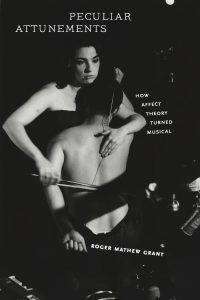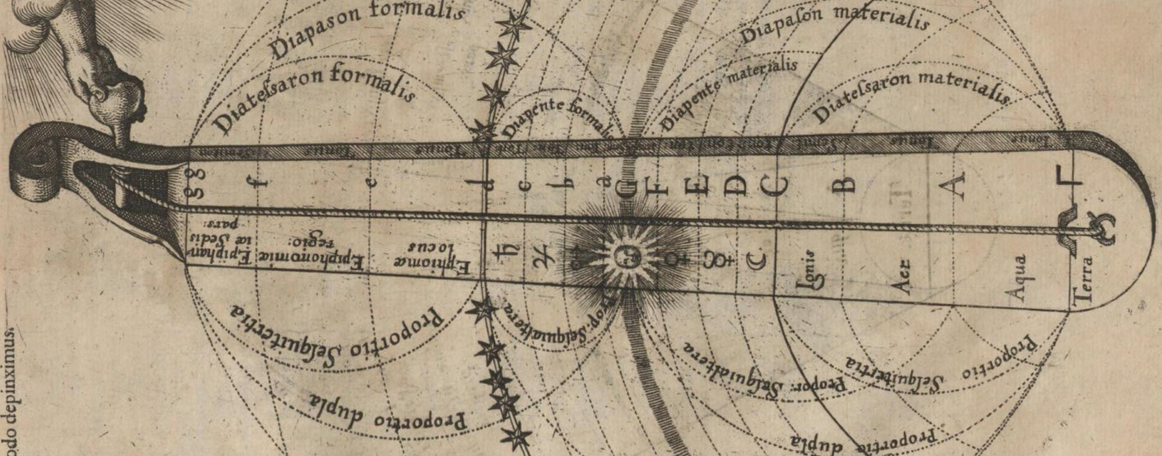Peculiar Attunements places the recent turn to affect into conversation with a parallel movement in European music theory of the eighteenth century. During that time the affects—or passions, as they were also called—formed a vital component of a mimetic model of the arts. Eighteenth-century critics held that artworks imitated or copied the natural world in order to produce copies of the affects in their beholders. But music caused a problem for such theories, since it wasn’t apparent that musical tones could imitate anything with any dependability, beyond the rare thunderclap or birdcall. Struggling to articulate how it was that music managed to move its auditors without imitation, certain theorists developed a new affect theory crafted especially for music, postulating that music’s physical materiality as sound vibrated the nerves of listeners and attuned them to the affects through sympathetic resonance. This was a theory of affective attunement that bypassed the entire structure of representation, offering a non-discursive, corporeal alternative. It is a pendant to contemporary theories of affect, and one from which they have much to learn. Inflecting our current intellectual moment through eighteenth-century music theory and aesthetics, this book offers a reassessment of affect theory’s common systems and processes. It offers a new way of thinking through affect dialectically, drawing attention to patterns and problems in affect theory that we have been given to repeating. Finally, taking a cue from eighteenth-century theory, it gives renewed attention to the objects that generate affects in subjects.
Struggling to articulate how it was that music managed to move its auditors without imitation, certain theorists developed a new affect theory crafted especially for music, postulating that music’s physical materiality as sound vibrated the nerves of listeners and attuned them to the affects through sympathetic resonance. This was a theory of affective attunement that bypassed the entire structure of representation, offering a non-discursive, corporeal alternative. It is a pendant to contemporary theories of affect, and one from which they have much to learn. Inflecting our current intellectual moment through eighteenth-century music theory and aesthetics, this book offers a reassessment of affect theory’s common systems and processes. It offers a new way of thinking through affect dialectically, drawing attention to patterns and problems in affect theory that we have been given to repeating. Finally, taking a cue from eighteenth-century theory, it gives renewed attention to the objects that generate affects in subjects.
“With unparalleled lucidity and in lively, nimble prose, Roger Grant unpacks the logic of the intertwining histories of affect theory and music theory. In doing so he offers us something sorely needed in two overlapping fields whose resonances have remained surprisingly underexamined. Affect theorists and musicologists have been waiting for a book like this for a very long time, and we are lucky to get it from a thinker as clear-sighted as Grant. For the historical perspective it brings to affect theory and refreshing critique of the ‘sense-certainty’ prevalent in its discourse in particular, Peculiar Attunements promises to be an instant classic in the study of affect and emotion.” —Sianne Ngai, University of Chicago
“Why is contemporary affect theory suffused with words like resonance, reverberation, tuning, vibration—language that conjures up music? Roger Grant, in posing that question, mounts a formidable and extraordinarily clear-headed critique of affect theory, while at the same time identifying and then demystifying its strange affinities with eighteenth-century theories about music’s power. This rich theoretical harvest becomes the framework for Grant’s novel take on mimesis and meaning in eighteenth-century instrumental music and opera, in a book that reimagines this repertory in ways that are subtle, surprising, revelatory—a tour-de-force.” —Carolyn Abbate, Harvard University

